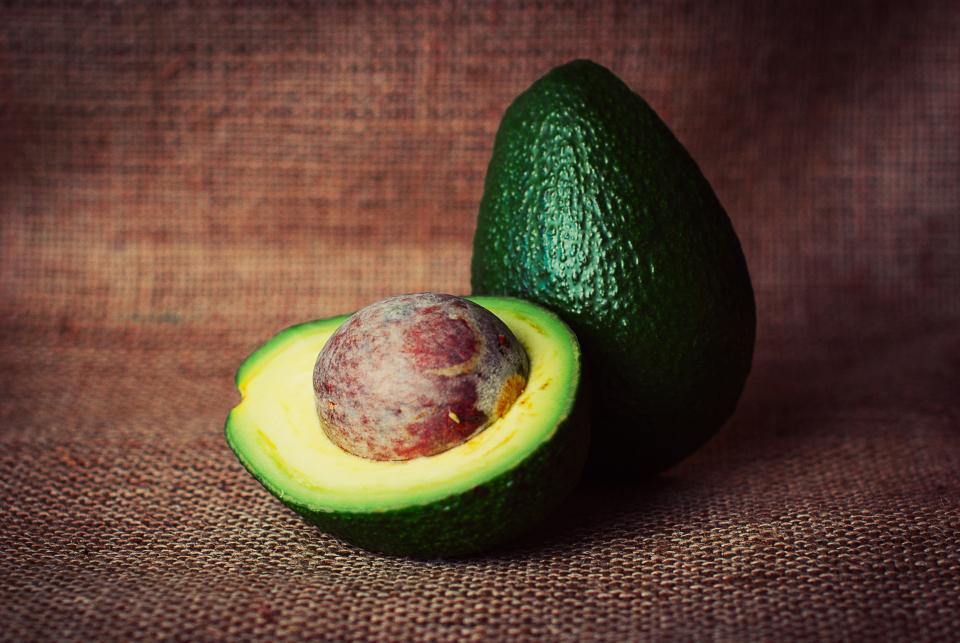Avocado gets a lot of attention for being the rich kid. They say we have to give up smashed avo on toast if we ever want to buy a house. But does avocado deserve all of the hype it gets?
Facts About Avocado:
Avocado was originally called “alligator pear tree”.
Avocado is a fruit. Believe it or not, tomato, cucumber, courgette, capsicum, pumpkin, eggplant and olives are also fruits because they have seeds or pips. So if you have an avocado, tomato, cucumber and olive salad like I do, you are actually having a “fruit salad”.
When we think of potassium (an electrolyte we lose when we sweat) we think of bananas, but avocado actually contains more potassium than bananas.
Avocado is in season September to April in NZ. Enjoy them while you can!
Benefits of Avocado:
Avocado is nutrient-dense, in 100 grams it contains 26% of your daily vitamin K, 20% of your folate, 17% of your vitamin C, 14% of your potassium, 14% of your vitamin B5, 13% of your vitamin B6, and 10% of your vitamin E. Plus trace amounts of magnesium, manganese, copper, iron, zinc, phosphorus, and vitamins A, B1, B2 and B3. Along with all of these nutrients you would be getting 160 calories, 15 grams of healthy fats, 2 grams of carbs, 2 grams of protein, and 7 grams of fibre. Avocado provides you with a lot of bang for your buck (or shall I say your whole pocket full of bucks).
Avocado is the highest fruit source of protein and fat, therefore, lowest in carbs. Perfect on a low carb, Keto or Paleo diet. Or anyone who needs to stabilise their blood sugar e.g. diabetes or insulin resistance.
Not only is avocado a bit rich, it is rich in good fats called monounsaturated fats. Fat, like protein, keeps you fuller for longer. Fat is much more satiating than carbs. Don’t be afraid of fat, eating fat does not make you fat. Check out my blog ~ Does Eating Fat Make You Fat?
Avocado helps to lower cholesterol with its monounsaturated fats, phytosterols, fibre and antioxidants. Avocado decreases LDL (bad cholesterol) and triglycerides, while increasing HDL (good cholesterol). Similarly to olive oil.
Avocado contains carotenoids called lutein and zeaxanthin which protect the eyes from degeneration. These antioxidants are linked to a significant reduction in the risk of cataracts and macular degeneration – important for aging adults.
Avocado is versatile and can be used in savoury or sweet dishes – after all it is a fruit! Not only guacamole or the famous smashed avo on toast. Try Avocado Chocolate Mousse! Even the avocado haters (how dare they!) won’t suspect anything. If you are trying to reduce carbs in your diet use avocado in smoothies instead of banana to retain that creaminess.
Avocado has few pesticides. They are on the Environmental Working Group’s Clean 15 list – meaning they are in the top 15 plants that contain the least amount of pesticides. So you don’t need to worry about buying them organic. Less than 1% of conventional avocadoes tested positive for pesticide residues.
How much is too much? The food I get asked about the most is eggs. Then avocado. People love them both, even more when they are paired together on sourdough with crumbed feta on top. I say there is no limit, as long as you are eating other food. They say, so can I eat 2 eggs every day?! You can eat 4 eggs every day. Eating eggs does not increase cholesterol because our liver manufactures 80% of our body’s cholesterol. So can I eat half of an avocado every day? You can eat a whole avocado every day. Again, as long as all of the other healthy foods are getting their fair share of attention.
Avocado oil its derivative is perfect for cooking due to its high levels of monounsaturated fats. Monounsaturated fats are suitable for heating and stable to cook with. They are also found in olive oil and macadamia oil.
Yes avocado is worth the investment. But diversify your investments as they say. In other words, eat a balanced diet while saving for that house.




